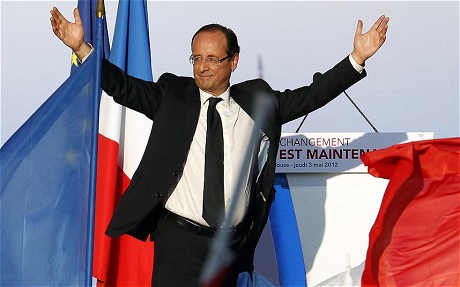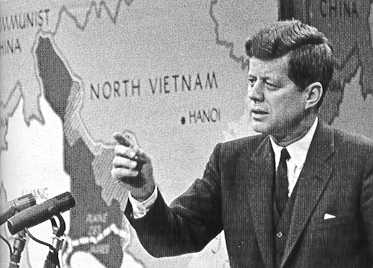The recent French municipal elections have resulted in a widely predicted defeat for the governing Socialist Party. The fallout of the results has been swift, with the country’s Prime Minister resigning from his post amidst rising concerns over the party’s prospects in the upcoming EU elections. Despite leaving the national government mostly unaffected for the time being, the results of these local elections indicate the profound challenges of incumbent governance in contemporary Europe.
Over the past few years several governments throughout Europe have been unseated by their electorates. In France, the Socialists assumed office in the wake of a right of centre government that was unable to endure the exigencies of the Eurozone crisis and the concurrent frustrations of the French public. Now right of centre parties are the beneficiaries of much the same process, albeit aided by some remarkably unsuccessful political projects undertaken by the Hollande government.
 It is clear that in France and throughout Europe there is widespread dissatisfaction with the status quo. This appetite for change naturally favours opposition parties and establishes the conditions for a high government turnover rate. However, it is striking that there is little apparent desire for a particular type of change. The election of the French Socialist Party was followed by startling results in Norway which saw a right-wing coalition attain victory, and now it seems the French right has been able to reassert itself. Patterns of general voter policy preference are difficult to identify throughout most of Europe. With the partial exception of Germany the only readily identifiable trend is a general impatience and dissatisfaction with the status quo, resulting in opposition to incumbent parties regardless of their ideological stripes.
It is clear that in France and throughout Europe there is widespread dissatisfaction with the status quo. This appetite for change naturally favours opposition parties and establishes the conditions for a high government turnover rate. However, it is striking that there is little apparent desire for a particular type of change. The election of the French Socialist Party was followed by startling results in Norway which saw a right-wing coalition attain victory, and now it seems the French right has been able to reassert itself. Patterns of general voter policy preference are difficult to identify throughout most of Europe. With the partial exception of Germany the only readily identifiable trend is a general impatience and dissatisfaction with the status quo, resulting in opposition to incumbent parties regardless of their ideological stripes.
This is what places national governments of the left, right, and centre throughout Europe in such a politically difficult position. Voters have made clear that they want change, but are entirely inconsistent on what that change should actually be. This encourages governments to pursue tokenistic populism and rhetorical platitudes while opposition parties express slogans of “change” without specifying its direction. The only politically safe governing priorities are ones with which everyone will agree, inviting opposition parties to complain about the ineffectual policies of their rivals.
This is perhaps a consequence of the contraction of the mainstream European political spectrum during the region’s integration process. Politicians in government and opposition have both capitulated to a more limited range of ideas. The French Prime Ministerial position, vacated after the Socialists’ defeat, was quickly filled by a Socialist politician noted for his distance from the left. Manuel Valls has gone so far as to argue that his party’s name should be changed. While this proposal was internally controversial, the Socialist Party name may indeed seem anachronistic to outside observers. Any socialist political practice distinguishable from more moderate social democracy has been off the European agenda for decades.
Serious discussion of political principles and ideology has more or less been abandoned. Instead politics has become a contest of immediate popular appeal. Rather than disagreeing, parties are just as likely to attempt to “outdo” each other on certain issues. In the UK, for example, the Labour Party has attempted to bolster its popularity by demonstrating that they are even “tougher” than the governing Conservatives on issues of welfare and migration. The Conservatives have pursued controversial but popular policies and their opponents in Labour, recognizing the immediate popularity of these measures, have chosen to distinguish themselves by advocating more strenuous application. This political strategy is entirely compatible with a popular demand that government “hurry up and do something.” Such imprecision inspires no great degree of political courage or imagination.
Experts on the topic of European integration have long discussed the relative lack of democratic engagement between European institutions and citizens. Aside from the perceived preponderance of unelected authority within EU institutions, turnout rates for EU elections have tended to be low. However, it seems European integration has coincided with gradually deepening domestic political disengagement as well. This can manifest itself in low turnout rates, but it can also be evinced by a lack of political enthusiasm, party membership, or clear indicators of popular policy preferences.
Some may see a decline in political division, general mainstream ideological agreement, and a large degree of policy continuity despite changes in government as positive indicators of stability. Under certain circumstances, this may be true. Few will be unfamiliar with the argument that low voter turnout in rich countries can be partially attributed to a lack of grievances. In this case, however, there is no shortage of dissatisfaction in Europe. What is actually lacking is a realistic alternative that will be taken seriously.
Over the long term, continued dissatisfaction with successive governments can lead to an erosion of confidence in the state itself. Preliminary indications are that this is occurring on a relatively small scale, but it remains to be seen whether it will become a general trend and what the consequences of this will be. In the meantime, high levels of government turnover, low levels of governing ambition, heightened public frustration, and a counterintuitive degree of policy continuity can be expected throughout much of the region.




